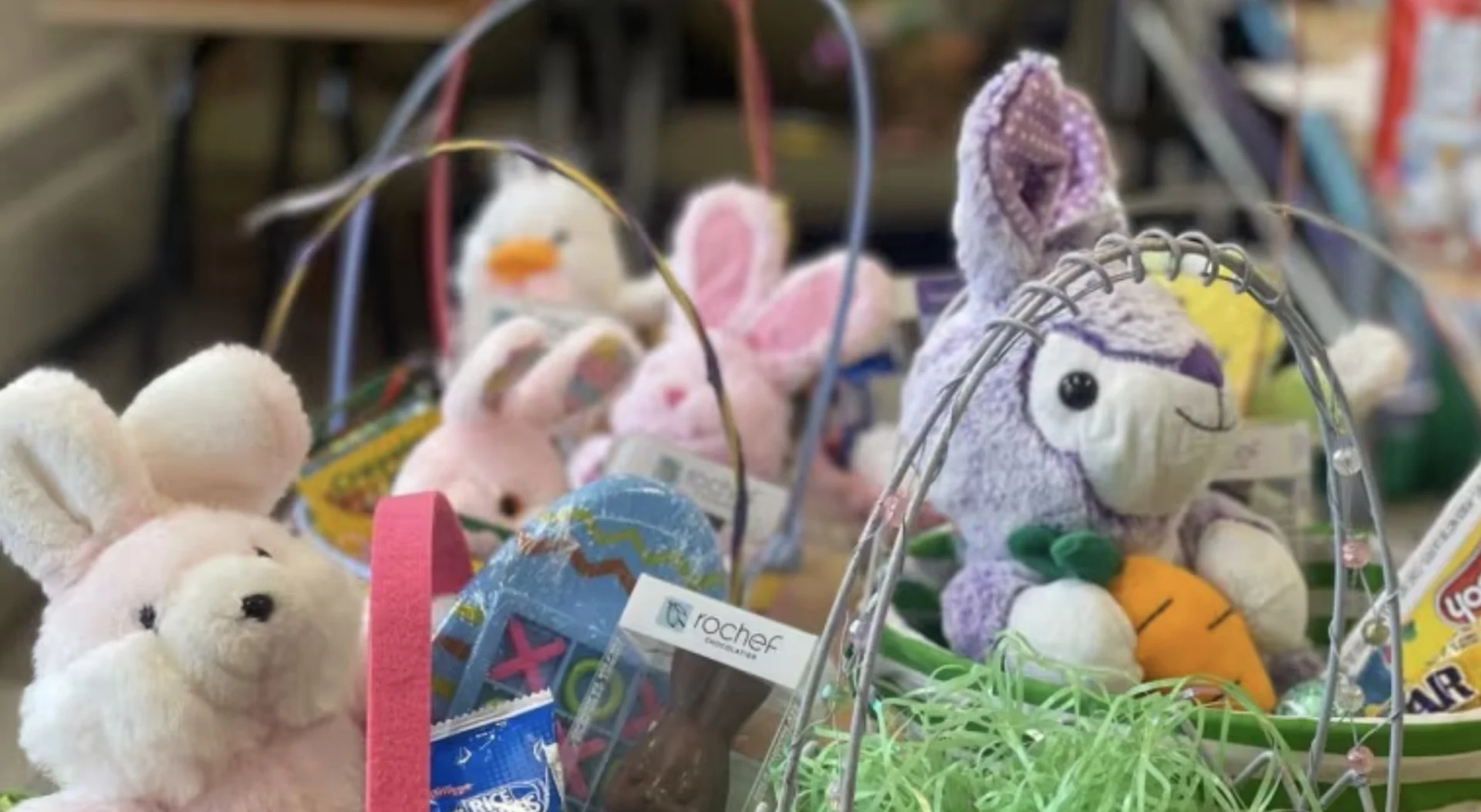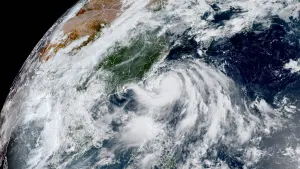
Stick to plushies, stay away from real bunnies, N.B. organization says
With Easter only a day away, the temptation to have your little one greeted by a hopping ball of fluff on Easter morning might be strong.
But Kristin Elton, the program director for the New Brunswick Invasive Species Council, is warning parents not to give in.
SEE ALSO: Adopting a bunny for Easter is not a good idea
"You are giving … up to a 10-year commitment with an animal that needs a lot more care and attention — and specific care — than a lot of people expect," she said.
Elton said people might see a cute bunny at first but that novelty can wear off after a few months, leading some to believe they can just set their furry friend loose in the wild.
Elton's caution is part of the council's "Don't Let it Loose" campaign, aimed at educating people about the impact of domesticated animals on native species and their habitats.
Tracy Marcotullio, the manager of the Oromocto SPCA, said the bunny problem doesn't just exist around Easter — it's all year round and getting worse.

Kristin Elton, the program director for the New Brunswick Invasive Species Council, said releasing a domesticated animal into the wild can have a negative impact on the local wild population. (Submitted by Kristin Elton )
"For some reason, bunnies have become popular pets, and they are not a great pet for a lot of households," she said.
"I think that people see bunnies and they think, 'oh, it would be like taking care of a cat,' and it's just not.
"So sadly, there have been way more cases of people abandoning bunnies outside over the last couple of years than we've seen in the last 25 years."
Last year alone, Marcotullio said the Oromocto SPCA took in 14 rabbits.
She said the SPCA is careful about who is allowed to adopt bunnies, making sure the person is aware the animals require hay each day, they don't love to be picked up and need a lot of space. Because of this, she said the rabbits they take in tend to stay in the shelter's care for quite awhile until they are adopted out.
But that doesn't stop the inflow. In summer, Marcotullio said rescued rabbits come in covered in hundreds of ticks. And in the winter, many of them don't survive outside because of the lack of food sources. And some of them come in pregnant, if they weren't spayed, which just worsens the problem.

Bunnies are seen here in a file photo from a Nova Scotia rabbit rescue. The invasive species council is warning people not to buy bunnies as Easter gifts without knowing about the required commitment. (Alex Mason/CBC)
"They're domestic bunnies. They're not wild rabbits," she said.
Elton said while letting a domesticated bunny loose in the wild is cruel and the animal will struggle to find shelter and food, such releases also can have an impact on the local wild population.
Impact on native populations
She said rabbits are known for reproducing in really high numbers, which can lead to overgrazing in some areas, competing with other native herbivores or the snowshoe hares — the only native lagomorphs in New Brunswick.
Domesticated rabbits sent into the wild have the potential to introduce disease, said Elton. For example, rabbit hemorrhagic disease is a highly contagious and fatal disease that affects rabbits and hares, according to the Government of Canada website.
"It's a lose-lose situation," said Elton. "Either they suffer because they don't know what to do, or they have a big impact on the environment."

A snowshoe hare, seen here in a file photo from a forest in Newfoundland and Labrador, is the only native lagomorph in New Brunswick, according to Elton. (Submitted by Micheal Peers)
And bunnies aren't the only pets that Elton said people will often release into the wild.
Goldfish, turtles and chicks are other common examples, she said, because people will sometimes assume smaller animals require a lesser commitment by their owners than is the case.
Elton said the council just really wants people to "think about the type of animal they're looking at getting, think about if they're going to be able to meet those animals' needs."
"Is it a good fit for your lifestyle?"
WATCH: Think twice about releasing that pet fish into local waterways
Thumbnail courtesy of Kim Bailey via CBC.
The story was originally written by Hannah Rudderham and published for CBC News. It contains files from Shift.









